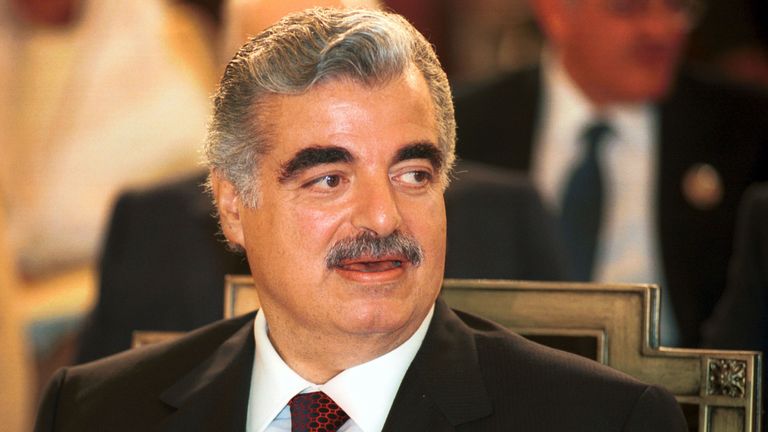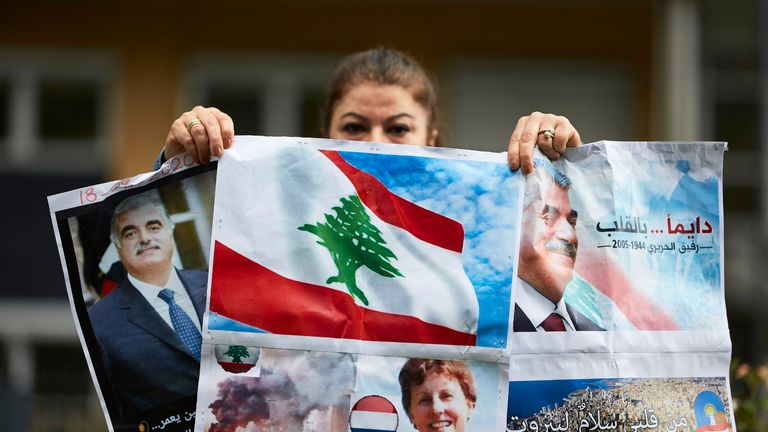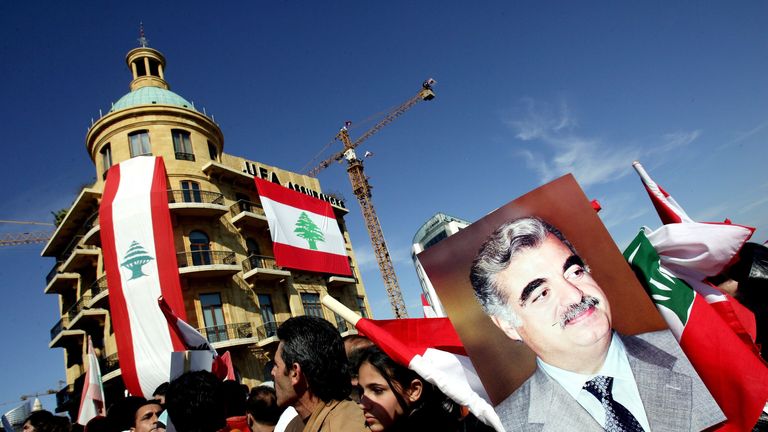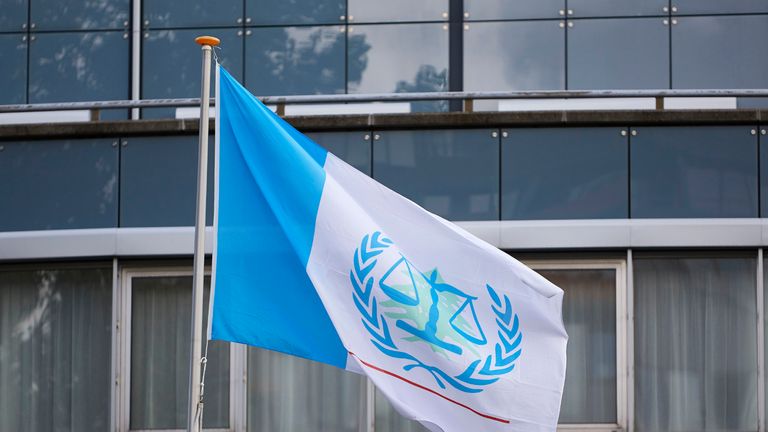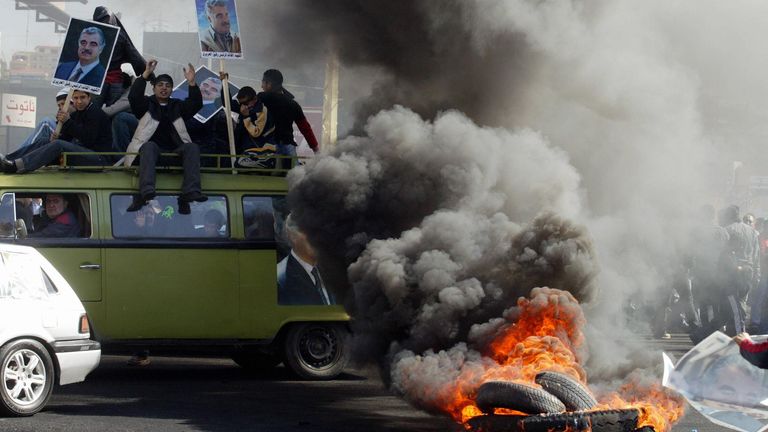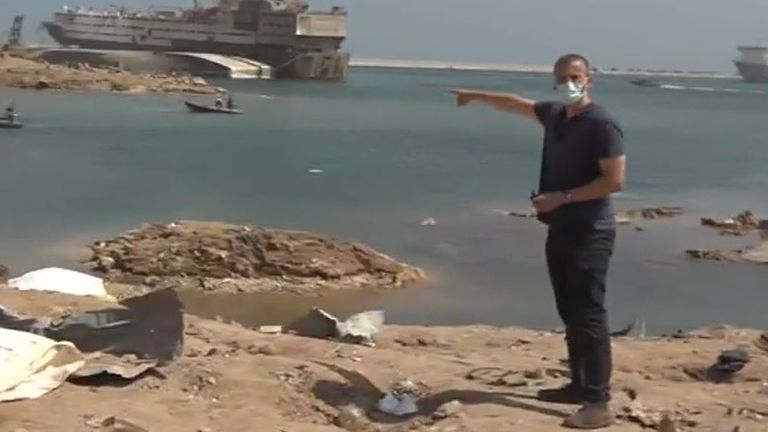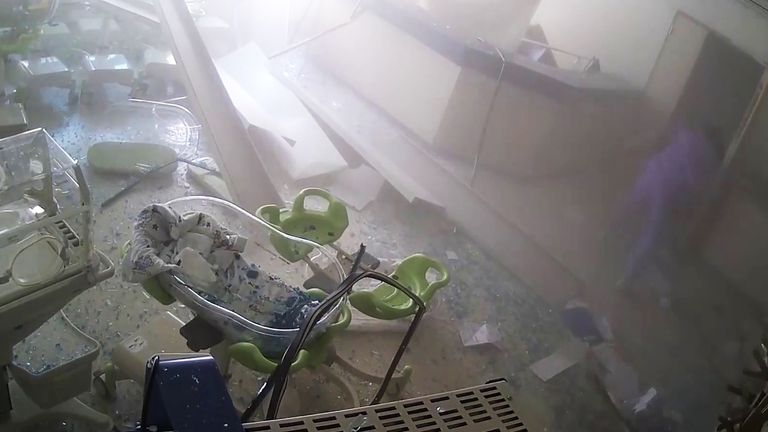Three men on trial for the assassination of former Lebanese prime minister Rafik Hariri in 2005 have been acquitted in a surprise judgement.
Hassan Merhi, Assad Sabra and Hussein Oneissi were all being tried, in their absence, along with a fourth man, Salam Ayyash, who was found guilty for his part in the assassination plot.
Mr Hariri was assassinated as his motorcade drove through Lebanese capital Beirut on 14 February 2005.
A suicide bomber driving a small truck detonated between 2,500 and 3,000kg of TNT explosives next to Mr Hariri’s six-vehicle convoy, leaving a two-metre-deep crater in the road.
The four men were on trial at a special court in The Hague, in the Netherlands.
The murder of Mr Hariri profoundly affected the direction and stability of Lebanon, the consequences of which are still unfolding today.
It has long been suspected that the Shia militant group Hezbollah was centrally involved in the killing, along with the support and backing of the Syrian government under President Bashar al-Assad.
The judges believed that “Syria and Hezbollah may have had motives to eliminate” Mr Hariri, because Lebanon at the time was effectively controlled by Syria and Mr Hariri had publicly aligned himself against the country.
However, the court did not find sufficient evidence to link either Hezbollah or the Syrian leadership to the assassination.
Speaking outside court, Hariri’s son Saad, who also served as prime minister, said: “I think everybody’s expectation was much higher than what came out, but I believe that the tribunal came out with a result that is satisfying.”
He added that he still wanted “just punishment” for the criminals.
Those who assassinated his father aimed, he said, to “change the face of Lebanon and its system and its civilised identity”.
The four defendants were, at the time of the killing, members of Hezbollah. They were not in court and their whereabouts are not known. They were represented by a defence team appointed by the court.
A fifth man – Mustafa Badreddine – was dropped from the indictment after he was killed in Syria in 2016.
It had been alleged that Badreddine, a senior Hezbollah commander, had masterminded the attack. But the court heard there was not enough evidence to make this conclusion.
The Special Tribunal for Lebanon, which has been in session for more than 10 years in The Hague, heard evidence from 297 witnesses, many of whom had their identity protected.
There were more than 3,000 exhibits of evidence and the final judgement amounted to 2,600 pages with 13,000 footnotes.
The evidence used in an attempt to convict the defendants centred around analysis of communications signals of numerous mobile telephones, the signals of which were picked up at the scene of the bombing.
The same mobile phones – which were only ever used to communicate with each other – were also proven to have repeatedly connected to cell masts close to Mr Hariri in the weeks leading up to his assassination.
Crucially for the prosecution’s case, a parallel pattern emerged showing that the anonymous phones were also geographically close to other mobile phones owned and used by the defendants.
“It is the consistency of these patterns that allows conclusions that these things are beyond coincidence,” said the presiding judge, David Re.
However, in the case of defendant Mr Sabra, the trial chamber failed to conclude that he was the only person who used two of the phones central to the prosecution’s case.
“This is fatal to the case against Mr Sabra,” the tribunal concluded.
The same conclusion was reached over Mr Merhi’s mobile phone.
In the end, the three men were acquitted because their involvement in the assassination could not be proven “beyond reasonable doubt”.
Because the court was not convinced of their role in the killing, the case against the third defendant, Mr Merhi was not convincing beyond reasonable doubt either.
Analysis: Court judgement will likely embolden Hezbollah
When the massive explosion echoed through Beirut two weeks ago, many minds in the city were immediately taken back to a critical day in the country’s history: 14 February 2005.
Was history repeating itself? A bomb? An assassination? It turned out not to be.
Nevertheless, there are psychological and political threads which link Rafik Hariri’s 2005 assassination and the port explosion.
The political and ideological divide which precipitated the 2005 assassination – the pro-West versus pro-Iran ideologies – have become acute once again.
Many of those who accused Hezbollah of the assassination also accuse the group of pulling the country to its knees, complicit in the corruption and incompetence that led to the port explosion.
The government in charge at the time of the port explosion was backed by Hezbollah.
This verdict will have implications both for Lebanon and for the reputation of long and expensive international tribunals.
Hezbollah always claimed this tribunal was an international conspiracy which it sought to undermine.
The judgement will likely embolden the group.
For those in Lebanon who wanted justice for the assassination, there was an expectation that this trial would reveal new evidence and that the long process would provide some justice and closure.
That has not happened.
The hope was that justice would be a better alternative to vengeance. Many will now feel they haven’t got justice.
And Lebanon right now is a country in an acutely perilous state.

